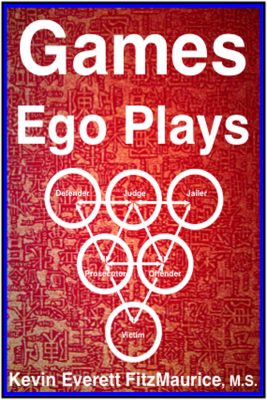CounselingRelationshipTest & ExperimentRealted Pages6 Groups of Topics10 Skills & Topics
Is the Relationship in Counseling Really Everything?
- Garden will teach you an easy and effective system of Cognitive Behavioral Therapy (CBT & REBT).
- Read and discover the best CBT self-help system.
Introduction to this Page
- In the counseling field, there is a current promotion of the idea that the only real factor that helps clients is their relationship with their counselor.
- This page will put that perspective into focus and under scrutiny.
Question the Reports Using Common Sense
- Do you think that it is your relationship with your medical doctor that heals you?
- Do you think that it is your relationship with a starving person that will feed them?
- Do you think that it is your relationship with your massage therapist that energizes and relaxes you?
- Do you think that it is your relationship with your math tutor that helps you to understand math?
- Do you think that it is your relationship with your accountant that gets your taxes done?
- In your own experiences of healing and improving your mental health, can you honestly attribute it only to some relationship?
- Is it reasonable to assume that a pleasant, positive, or perfect relationship with a counselor will heal anger, anxiety, depression, guilt, and/or shame?
- Is it reasonable to assume that a strong attachment to a counselor will heal anger, anxiety, depression, guilt, and/or shame?
Science or Bias in the Social Studies Used?
Studies often have bias, design, expectation, method, reporting, and technical problems.
- What information or data from the study or studies used to promote this belief is being suppressed?
- For example, did the study examine and report on: what is the effect of the relationship on how long a person stays in counseling, or what is the effect of the relationship on the client continuing past the first session (many do not).
- What statistics gathered from the study are not being reported or used?
- What questions were used to gather the information and what is it about those questions that lead participants to the desired answers?
- How was the psychology of the choices that were provided to participants chosen or examined?
- Surely, it was not left to chance, which often means that bias alone guided it.
- How was the psychology of the provided or forced answers examined and accounted for?
- Surely, professionals in the field of counseling understand that psychology plays its part and so they would never choose to ignore such an important factor or fail to report on it in their study.
- What was determined to be the motivation or intention of the participants in the way that they responded to questions about their counseling experiences?
- Did choosing answers other than the relationship answer tend to make the participants feel stupid, ignorant, dependent, or incompetent?
Studies often have population or participant design problems.
- Who were the participants and how were they screened?
- Is the participant population able to represent the general population or can generalizations made from the study only apply to similar population groups?
- What procedures were performed to verify that the participants were responding objectively and truthfully?
- Were the respondents so enamored of their counselor that they were unable to report bad outcomes because they cared for or were attached to their counselor?
- Can the participants be considered competent and knowledgeable judges for what works and what does not work in counseling?
- Can the participants be considered competent to judge even their own success in counseling?
- Were the participants simply picking the easiest answer?
- Were the participants picking the answer that made them or their counselor look good or look the best?
Competing Studies Using Same Methods
- If we did a study using the same methods, but our focus was on who was consistently attending sessions?
- Would that get us the same results?
- Or would we find that continuing in counseling was the major factor in success in counseling?
- One can easily argue that the best results are for clients who live through or beyond their counseling experience since clients who die fail to have any good results.
- One can argue that the best results are for clients who attend twenty sessions (or some other predetermined number of sessions) before terminating counseling.
- One can argue that a good counseling relationship is correlated with a good counseling outcome, but neither predictive of one nor the cause of one.
- So which of these five causes do you think brings success: relationship, attachment, attendance, gaining insight, or staying alive?
- Read and discover the best CBT self-help system.
If Relationship Is the Only Criteria: Counseling Must Change
- If the relationship is the only criteria for success in counseling, then work on developing mutual admiration societies with your clients since those please the ego the most.
- If the relationship is the only criteria for success in counseling, then just hire paid friends.
- Who needs counselors who charge more based on their training to do more than just coddle or spoil people by taking their side on most everything?
- A good hairdresser can do as much, and you get your hair done at the same time.
- If the relationship is the only criteria for success in counseling, then perhaps become a comedian and provide both a good relationship and the relief that only humor seems to provide.
- If the relationship is the only criteria for success in counseling, then understand that beneath successful relationships is the issue of attachment.
- Therefore, all counselors should practice Attachment Therapy or they are practicing unethically.
- Should counseling programs focus solely on learning how to make people feel that you like and accept them? Why not?
Good Relationships Can Help
- Yes, it is obvious to everyone that most people benefit more from coaches, helpers, teachers, and tutors that they get along with than those they have conflicts, issues, or negative transferences with.
- It is easy to argue that a good relationship is connected, correlated, and related to a good counseling outcome.
- However, some people have chosen to benefit from coaches, counselors, helpers, mentors, teachers, and tutors who were at best difficult to work with.
- Throughout history, how many successful sports teams have had difficult if not mean coaches?
Relationships Can Be Healing
There are times when a good relationship can also be a healing relationship.
- A client with a history of only bad relationships might benefit greatly from finally experiencing a good one.
- A client with a history of very few good relationships might benefit greatly from finally finding another good one.
- A client with a history of no or few good relationships with the opposite sex might benefit greatly from finding a good one with a member of the opposite sex.
Experiment with Your Own Criteria for Positive Results
Here is a starter list of criteria to experiment with:
- Client-counselor good working relationship.
- Providing helpful advice and coaching.
- Improving and generalizing any existing coping and problem-solving skills that are effective.
- Developing and practicing better and more coping and problem-solving skills.
- Improving interpersonal, relational, and social skills.
- Lessing ego a.k.a. self-esteem and increasing self-acceptance.
- Regular attendance and homework assignment completion.
This Debate Is Not New
- For those unfamiliar with the history of counseling, Carl Rogers and Albert Ellis had this debate long ago.
- Rogers maintained that a relationship had to meet specific conditions (empathy, congruence, unconditional positive regard) to be of help.
- Contrarily, Ellis maintained that such was not at all necessary and that even an adversarial relationship could be effective.
- Perhaps it is time to revisit their debate.
- Perhaps it is time to take your own survey of your own clients to find what they report is working or worked for them.
- Perhaps your clinical experience is more important than any study, slogan, or book.
- Perhaps it is the relationship that cures clients after all, but not just a good relationship with a counselor; but, more importantly, a good relationship with themselves, others in general, and life itself.
- REBT teaches how to develop good relationships with ourselves, others, and life using its three core principles of Unconditional Self-Acceptance (USA), Unconditional Other-Acceptance (UOA), and Unconditional Life-Acceptance (ULA).
- Read and discover the best CBT self-help system.
Related Pages of Free Information
- CBT, CT, & REBT Cognitive Psychotherapies: List Pages
- Coping Skills: Free Help
- Counseling Issues: Free Help
- Emotional Responsibility: List Pages
- REBT (Rational Emotive Behavior Therapy): List Pages
- Responsibility Issues: Shoelaces Parable on Responsibility
- Self-Esteem Issues: List Pages
- Thinking Skills: Seven Thinking Errors of CT
- Unconditional Self-Esteem (USE): Defined
- (USE), (UOE), (ULE) & (UAE): Examples
- (USE), (UOE), (ULE) & (UAE): Reasons
- Read and discover the best diagrams and maps of how people play games with your mind and heart.
- Read and discover how CBT, REBT, & Stoicism evolved into one system: STPHFR.
- Read and discover the best CBT self-help system.
6 Groups of Topics Menu
- 1. Pages by Topic
- 2. Fast-Facts by Topic
- 3. Quotations by Topic
- 4. Poems by Topic
- 5. Scripture by Topic
- 6. Websites by Topic
- Read and discover how CBT, REBT, & Stoicism evolved into one system: STPHFR.
- Read and discover the world’s best breathing exercise for centering and peace of mind.
- Read and discover the best CBT self-help system.
9 Skills & Topics Menu
- 1. Anger Skills & Topics
- 2. Blame Skills & Topics
- 3. Communication Skills & Topics
- 4. Coping Skills & Topics
- 5. Counseling Skills & Topics
- 6. Praying Skills & Topics
- 7. Recovery Skills & Topics
- 8. Responsibility Skills & Topics
- 9. Thinking Skills & Topics
- Read and discover how CBT, REBT, & Stoicism evolved into one system: STPHFR.
- Read and discover the world’s best breathing exercise for centering and peace of mind.
- Read and discover the best CBT self-help system.




